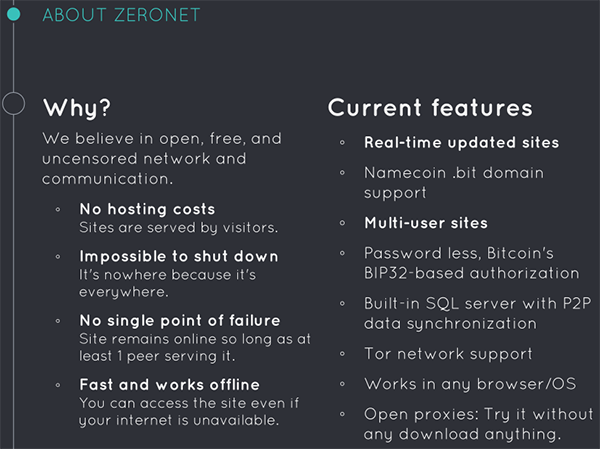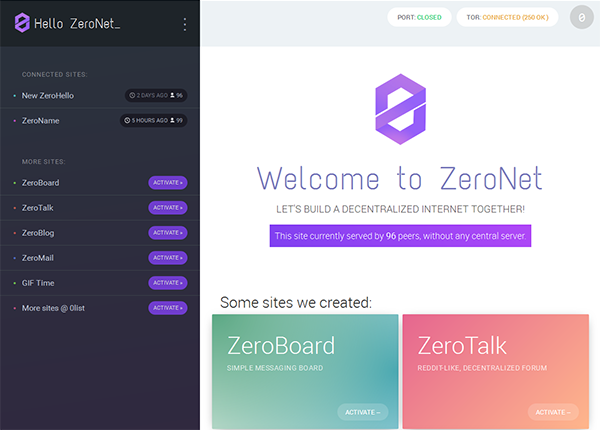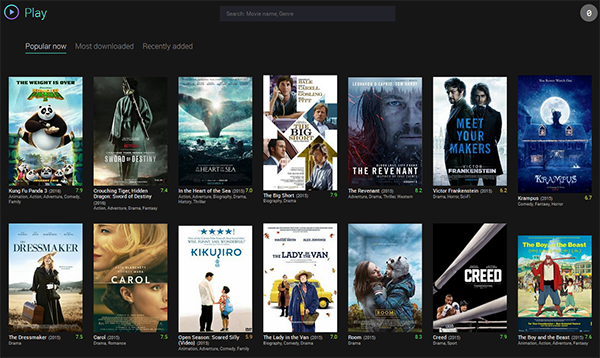A little more than a week after the closure of owner SlySoft, controversial ripping tool AnyDVD is back. Now operating under the RedFox banner, AnyDVD and friends have skipped to Belize while offering a brand new release. Interestingly, associations with piracy are being made unwelcome, with one developer claiming that’s not what their tools are all about.
Source: TF, for the latest info on copyright, file-sharing, torrent sites and ANONYMOUS VPN services.
 After coming under pressure from decryption licensing outfit AACS LA, last week DVD and Blu-ray copy-protection circumvention company SlySoft shutdown.
After coming under pressure from decryption licensing outfit AACS LA, last week DVD and Blu-ray copy-protection circumvention company SlySoft shutdown.
It still hasn’t been made clear if studios including Warner Bros, Disney and technology partners Microsoft and Intel were behind the closure, but for now that’s the working assumption. Having SlySoft flagship product AnyDVD off the market would’ve been a huge feather in their collective caps.
But shutdowns of companies like SlySoft often prove troublesome and earlier this week the first signs of cracks in the closure began to show. With talk of a return under a new banner a hot topic, former developers openly discussed bringing AnyDVD and other products back online.
Making things more interesting was the revelation that SlySoft was not entirely based in Antigua but actually a decentralized operation with developers scattered in countries around the world. Developers who, it transpired, still had access to key SlySoft infrastructure and the will to reanimate the project. In the end, it didn’t take long.
Still sporting a familiar ‘fox’ logo, yesterday a reborn ‘RedFox’ rose from the ashes of SlySoft. Now hailing from Belize with at least some infrastructure in Latvia, the RedFox team delivered their first release – an update to AnyDVD, version 7.6.9.1.
“AnyDVD reborn! SlySoft is dead, long live RedFox!” declared the changelog.
“This is an intermediate release, so old customers can continue to use their existing AnyDVD license to watch their discs. This version can access the new RedFox Online Protection Database,” the group added.
Perhaps of most interest are the new features. In addition to some minor fixes and improvements, AnyDVD also supports new discs, a big first step for a product that just a week ago looked destined for the archives.
The release will only work if users already own a valid AnyDVD license, which suggests that RedFox have access to the old company’s licensing systems, another important step for keeping the business model moving forward. Additionally, old SlySoft products have also returned, including CloneBD and CloneDVD.
But while would-be pirates might find cause for celebration, not everyone in the new RedFox team welcomes being so closely associated with the practice. A developer identifying himself as ‘Peer’ says that comments made by release groups in an article published on TF at the weekend left him feeling “depressed”.
 “Pirates were never the intended audience. If SlySoft could have shaken them off, they would have. In fact – some people seem to think, that without piracy, SlySoft wouldn’t have existed,” Peer explains.
“Pirates were never the intended audience. If SlySoft could have shaken them off, they would have. In fact – some people seem to think, that without piracy, SlySoft wouldn’t have existed,” Peer explains.
For those that primarily used SlySoft’s products for piracy (and the MPAA and AACS LA seem to think that’s a whole bunch of them) the assumption seems reasonable. However, Peer sees things somewhat differently.
“Pirates only made a very small percentage of the AnyDVD userbase. And – given that they are pirates, it’s a valid question whether they were even paying customers,” he says.
“AnyDVD was created out of the frustration of a few people, who got fed up with the unplayability (yes! that word is fitting!) of DVDs and later on Blu-ray discs. So, of course, SlySoft could have easily done without the pirates – and had they, SlySoft might even still exist.”
While one can see Peer’s point (and presuming for a moment we can easily interchange the terms ‘piracy’ and ‘copyright infringement’), the fact that AnyDVD drilled a huge hole through the encryption efforts of AACS LA makes it a seriously infringing piece of software, if of course the trade groups and courts are to be believed.
So, one has to conclude that even without piracy SlySoft would’ve been in trouble, a point not lost on the developer.
“It’s not that the AACS-LA wouldn’t have gone to the same lengths trying – don’t mistake them to be fighting piracy, their goal is a more immediate one, which is to justify their existence,” Peer says.
“They have this huge money-making machine, collect fees for every [blu ray disc] ever being sold without having to really, well, do much (god, I wish I were the AACS-LA), while promising to protect the discs in return, which effectively doesn’t work – so they have no choice but to fight back.”
That fight includes taking down products like AnyDVD and DVDFab, both of which are closely connected (whether the developers like it or not) with DRM circumvention and ultimately piracy.
“You can’t deny that [piracy] is hurting the movie industry. And you can’t deny that we were involuntarily helping piracy. Just like the glass cutter involuntarily helps burglary,” Peer says.
“So, sorry MPAA, AACS and all you people with the fancy acronyms – we can’t help you with the piracy, but since no one is helping us with [playing and backing up] movies, we’re picking up things ourselves.”
Nevertheless, the intentions of the RedFox team will have little bearing on how they are perceived by the MPAA and AACS LA. They will be seen as outlaws with no respect for the laws that the industry groups worked long and hard to have put in place. On that basis alone, this battle is far from over.
Source: TF, for the latest info on copyright, file-sharing, torrent sites and ANONYMOUS VPN services.

 When it comes to accusations over music piracy and subsequent litigation, US-based Warner is usually on the aggressive side of the fence. However, a case that has just concluded in Spain shows that sometimes the tables can be turned.
When it comes to accusations over music piracy and subsequent litigation, US-based Warner is usually on the aggressive side of the fence. However, a case that has just concluded in Spain shows that sometimes the tables can be turned.

 TCYK LLP is a US-based company set up to turn Internet piracy of the Robert Redford movie The Company You Keep into profit by tracking down alleged downloaders of the movie and sending them demands for cash.
TCYK LLP is a US-based company set up to turn Internet piracy of the Robert Redford movie The Company You Keep into profit by tracking down alleged downloaders of the movie and sending them demands for cash.

 The Brazilian Civil Rights Framework for the Internet (Marco Civil da Internet) is legislation that governs the use of the Internet in Brazil. Under development since 2009 the Marco Civil aims to protect online privacy rights, net neutrality principles and other key issues.
The Brazilian Civil Rights Framework for the Internet (Marco Civil da Internet) is legislation that governs the use of the Internet in Brazil. Under development since 2009 the Marco Civil aims to protect online privacy rights, net neutrality principles and other key issues. 

 After coming under pressure from decryption licensing outfit AACS LA, last week DVD and Blu-ray copy-protection circumvention company SlySoft
After coming under pressure from decryption licensing outfit AACS LA, last week DVD and Blu-ray copy-protection circumvention company SlySoft 




